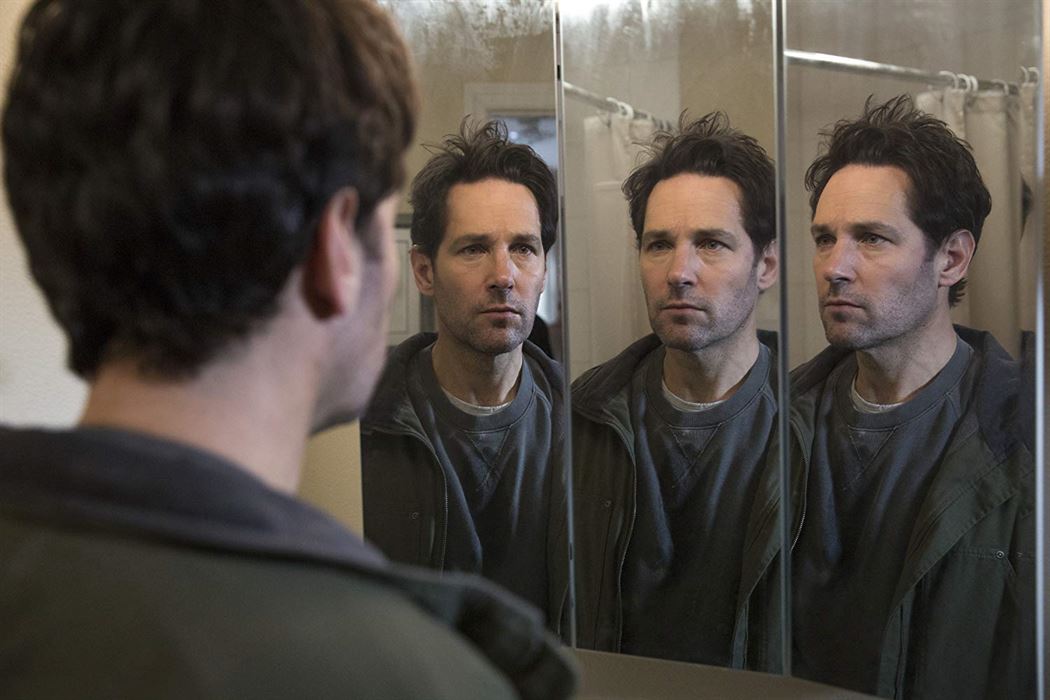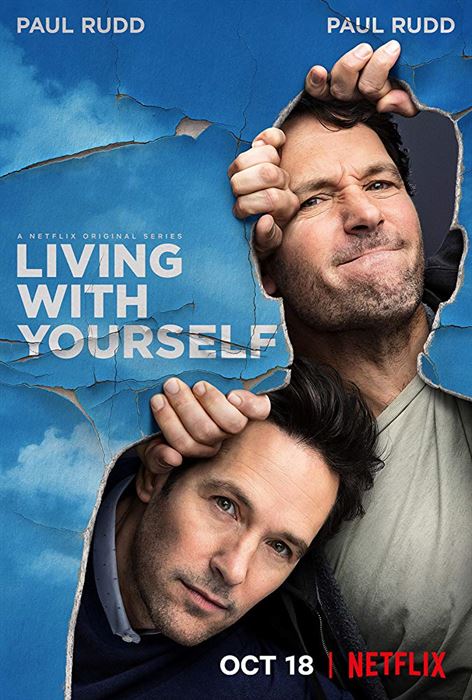“Living with Yourself” is an existential dramedy that personifies our greatest insecurities while remaining hilariously inventive. Although the plot travels through unexpected twists and turns, the ensuing character development is a rewarding experience.
The Netflix original program created by Timothy Greenberg forces viewers to consider how far they would go for a quick fix as Miles Elliott, played by the incomparable Paul Rudd, drops tens of thousands of dollars on a mysterious procedure at “Top Happy Spa,” a secret establishment that only takes appointments through referral.
Discouraged by his failing marriage with wife Kate, played by Aisling Bea, and tormented by the monotonous work at his 9-5, Miles follows the advice of a coworker that has recently undergone the treatment and shares the story of his miraculous improvement. “I went to a spa,” he shares. “Ever since then, I am on fiyah!”
What’s better than Paul Rudd? TWO Paul Rudds. Just finished Season 1 of #LivingWithYourself and LOVED it. Takes a bit getting used to the tone, but this genre dramedy uses a simple powerful metaphor to tell a strange and ultimately emotional journey. And Paul Rudd is FANTASTIC. pic.twitter.com/JvVxlBT2hb
— Chris Rafferty (@ChrisRafferty) October 31, 2019
In a moment of desperation, Miles drains his savings account and sets up his appointment. When he arrives at the deteriorating strip mall entrance there is a moment of hesitation, until he sees Tom Brady emerge, confessing to Miles that he’s visited the spa six times. This scene is an example of the beautifully absurd sense of humor woven throughout this narrative.
Miles is greeted by a futuristic interior with aesthetically pleasing decor and calming elevator music. The stark contrast between the inside and outside acts as a red flag, but also emphasizes the series theme that appearances can be deceiving.
The two spa attendants explain that Miles will undergo a cure-all operation and through an “exclusive process,” his DNA will be rebuilt to produce a better version of himself.
Hours later, Miles wakes up wrapped in plastic and buried in a shallow grave, only to return home and find a doppelganger in his place. He soon realizes that the better, happier version of himself is merely a clone that has been given all of his memories without any of the physical wear and tear.
The “new and improved” Miles is better than him at seemingly everything. Miles 2.0 earns respect at work, he takes better care of Kate, he’s more handsome and he’s more likable. Or so it seems.
Throughout the first season, Miles is literally and figuratively antagonized by himself. Miles’ life becomes a symbol of the modern day disparity between our online personas and our own self-image. While watching this show it became strikingly clear how these conflicting versions of ourselves can similarly cause tension in our understanding of who we are.
#LivingWithYourself is everything I'd hoped it would be. A Black Mirror-esque comedy with so much heart. Rudd, Rudd and Bea are incredible and the triangle between them is just so fun to watch. Would love another season.
— Sean (@MrSeanysean123) November 3, 2019
Spend any time on the internet and you will be bombarded with images of celebrities and models telling us how we should look and act; subconsciously showing us how to be more “perfect.” We post edited images of ourselves on social media, claiming to be “living our best life,” but needlessly compare ourselves to others.
Plastic surgery, crystal healing and Gwenyth Paltrow’s controversial health advice have been espoused as 21st century fixes, and without making judgement, “Living with Yourself” begs the question: why are we so eager to change who we are?
The soundtrack is playfully eerie, with moments of harmonic levity amidst the techno chaos. It is a perfect pairing with this suspenseful sci-fi driven story.
Cinematically, this series is captivatingly moving. One of my favorite scenes occurs in the first episode, while Miles is stuck in another unbearable conference room meeting surrounded by coworkers in virtual reality headsets as he sits alone in his reality, completely miserable. The visual symbolism is so rich and the shot composition remains a strong element throughout all eight episodes.
The writing is impressive as well, and between each episode, the opposing Miles’ earn their own space for empathy. This dynamic creates a necessary confusion regarding who the audience should actually root for and amplifies dramatic tension.
At a few points the plot seems to unravel, namely when the original Miles is briefly kidnapped and interrogated in a lactation room. But the bizarre nature of this scene does ultimately serve its sense of humor and poses a new question for Miles: “How can you be sure that you are you?”
Without spoiling anything, I was also a bit confused by Kate’s ambivalence and her initially strong point of view seemed to change within one 20-minute episode. After this season’s bombshell ending I hope to see her develop more strength and weight in her own character, as opposed to being a plot point in Miles’ life.
https://twitter.com/aniffyant/status/1189365595860590593?s=20
Rudd masterfully plays these dueling parts with so much raw energy and charm that I felt personally connected to the characters and their world. At times it seems like these roles were written for him, and the range between emotional ups and downs reminded me why he is so well-loved by fans and critics alike.
Ultimately, “Living with Yourself” is a welcomed addition to the Netflix originals lineup and proves that the world can never have too much of Rudd.





